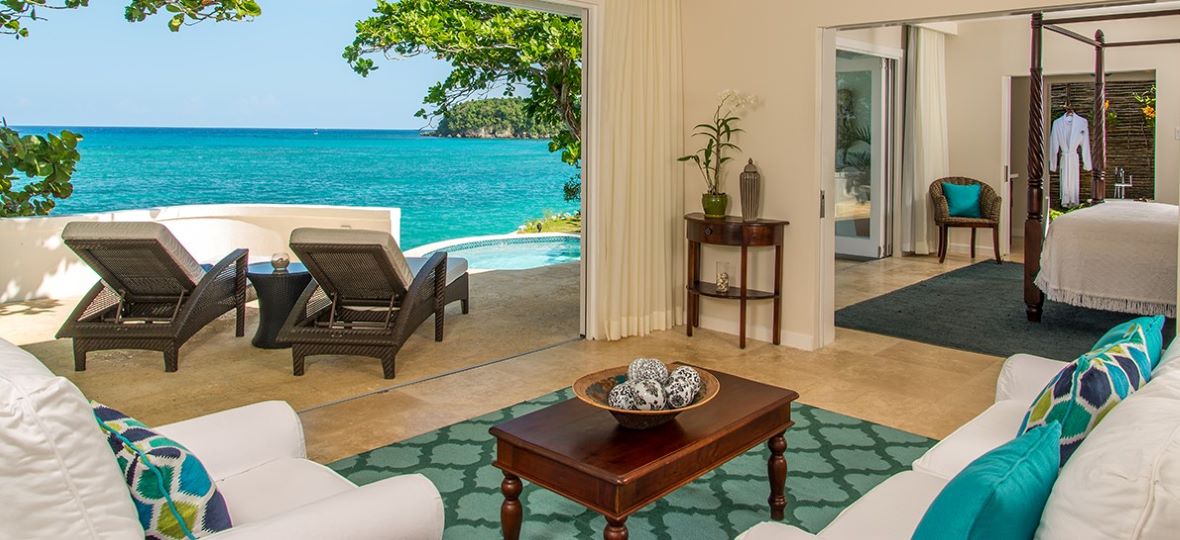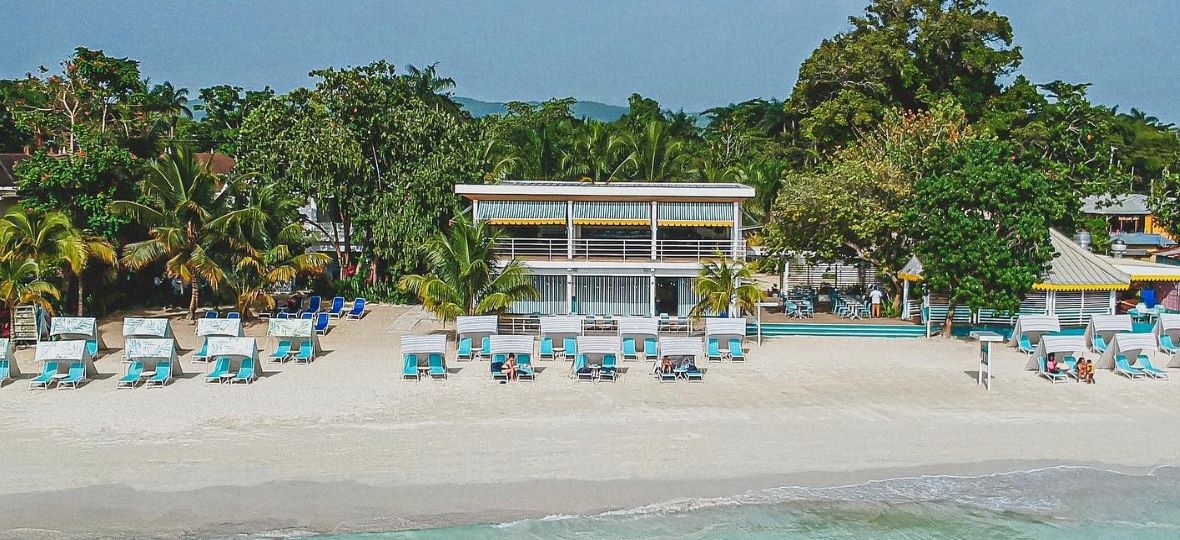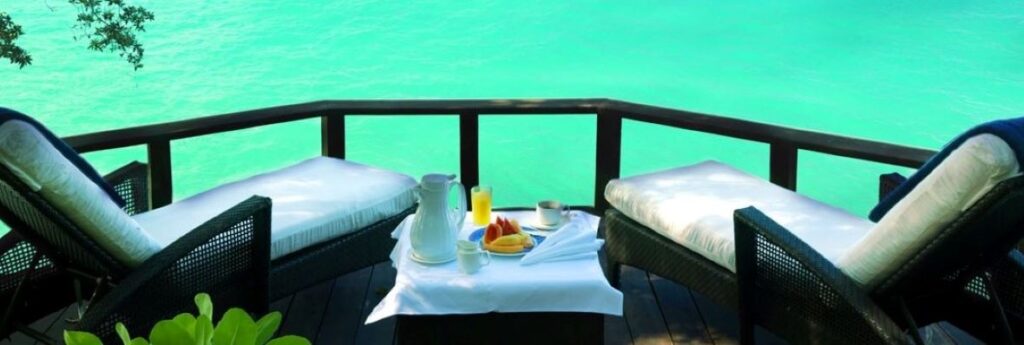Fewer fellow guests or more wide-open spaces? That’s the question many travellers are pondering in the face of the pandemic when choosing to stay at a mass-market resort or small boutique property. Two admittedly biased Jamaican hoteliers believe the latter option is a “no-brainer.”
“We’re in a much better position because clients are looking for low density,” says Jamaica Inn GM Kyle Mais. “It’s a no-brainer to go with a boutique-style property: small, intimate, less congested.”
He adds, “You never see a line where we eat, ever. There are no buffets.”
Located in Ocho Rios, Jamaica Inn has just 55 suites spread over 3.2 hectares, including a 215-m. private beach. Accommodation options also include bungalows and cottages. Meanwhile, the resort’s signature palapas are already 18 m. apart.
Mais says he is reluctant to state that small hotels are safer than big ones, but he does believe “it certainly gives you much more comfort knowing that everything is spaced out. You have the luxury of space and that it is huge selling point.
“I tell all my colleagues at Sandals and RIU and the rest of them, ‘Don’t be jealous, I have it so much easier than you do when it comes to giving our clients that sense of space. These days it’s all about space.’”

For his part, Oliver Cargill of the Skylark Negril Beach Resort believes a small hotel is simply more manageable than a big one with owners and staff having more control.
The Skylark, for example, has only 21 rooms open during the pandemic, leaving some empty and a few others for quarantine (as required by government regulation) with similar limited capacity at Miss Lissy’s restaurant.
And if there are issues, they can be resolved in “real time because we’re so small,” he says.
He adds that in addition to a greater capability to manage guest experiences, it’s easier to manage hotel staff as well.
“We don’t have such a huge team where things can get out of control and protocols can be broken,” he says. “So, while a huge property might have more space, they also have more guests and more staff. At a smaller property we can manage that a lot more.”
However, he quickly points out that with Negril’s famed big beach in front of the resort, guests do have room to roam and will never feel over-crowded like at a big all-inclusive. “We can put half of Negril on our beach and still maintain social distance,” he laughs.
At the same time, he muses, “How much space does one really need – six feet, right?
“I would say, at this point, if I were to travel I would go to small hotel because I know that a big impact in a small place rather than a small impact in a big place, it’s easier to manage a small hotel – especially in a time like this.”
To that end, Skylark has implemented a host of health and safety protocols, which start upon guests’ arrival at the airport in Montego Bay with enhanced transfer sanitation practices and continue with screened check-in at the hotel. Once there, guests are invited to join a WhatsApp group to communicate with other guests and staff.
It has also been critical, Cargill says, to train staff in pandemic protocols.
“Face-to-face contact is what sells us, that’s who we are,” he says, adding that engaging staff are an important part of the guest experience.
“We hire personality and character and we train skill,” he says, adding, “We feared that the fear of COVID might change how we give our service to people. But we figured if we educate everyone (staff) on what COVID is, how it’s spread, how to protect yourselves while protecting others, that people would feel a lot more comfortable to be their true (personable) selves…”
Elaine Carnegie of Canlink Travel in Newmarket, Ont., which specializes in small Caribbean luxury hotel representation (including Jamaica Inn, The Tryall Club and Round Tree Hotel and Villas in Jamaica), says the properties they promote are ideally suited to the new realities of pandemic and post-pandemic travel.
She cites the following COVID-friendly attributes offered by many small, boutique hotels:
• VIP airport transfers
• Reduced number of customers in house, including restaurants
• Fewer rooms, most under 100 and some as small 20
• Accommodation choices are often large and private with lots of living space, including cottages and villas
• Plenty of personal private space, including private porches, pools, and beaches
• Customized butler service
• Luxury in room dining
• Personalized on-property experiences, such as outdoor spa services, organic garden tours, and cooking classes (and because the hotels are small, activities are small or can even be private)
“Many travel agents already know and book these amazing luxury choices,” says Carnegie, “however, now there is opportunity for all agents to secure bookings by using the talking points of the small luxury and private experiences they can offer.”


